Fibershed Annual Report 2023
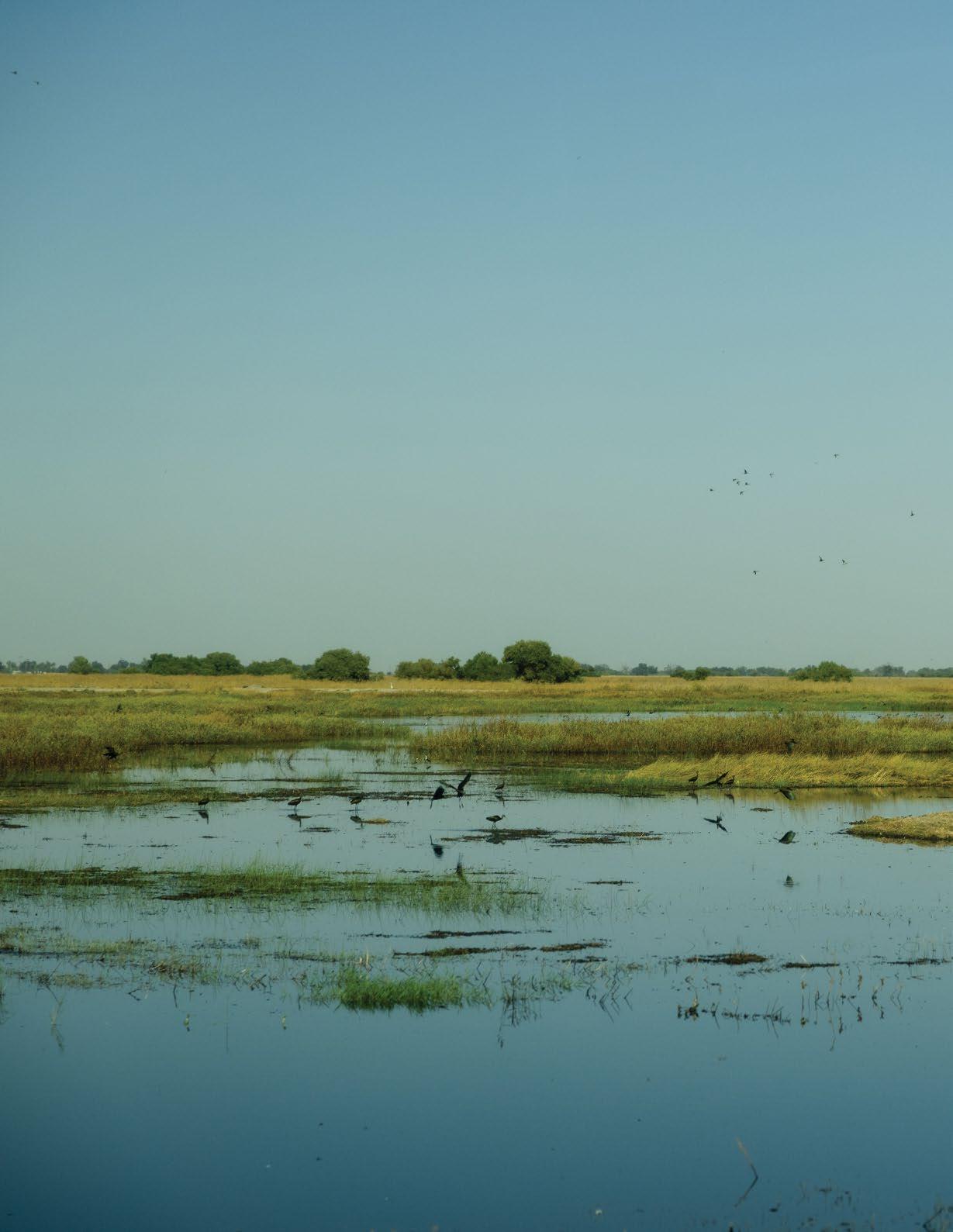
Fibershed develops regional fiber systems that build ecosystem and community health. We transform the economic systems behind the production of material culture to mitigate climate change, improve health, and contribute to racial and economic equity.

2
OUR MISSION
Making a Tule Boat workshop with Charlie Kennard at the Fibershed Learning Center in Point Reyes Station, California Photo by Fibershed Staff
We expand opportunities to implement climate beneficial agriculture to improve ecosystem health. We develop regional fiber systems and manufacturing networks that catalyze local economies.
We provide and use education and advocacy to connect, inform, and strengthen fiber communities.
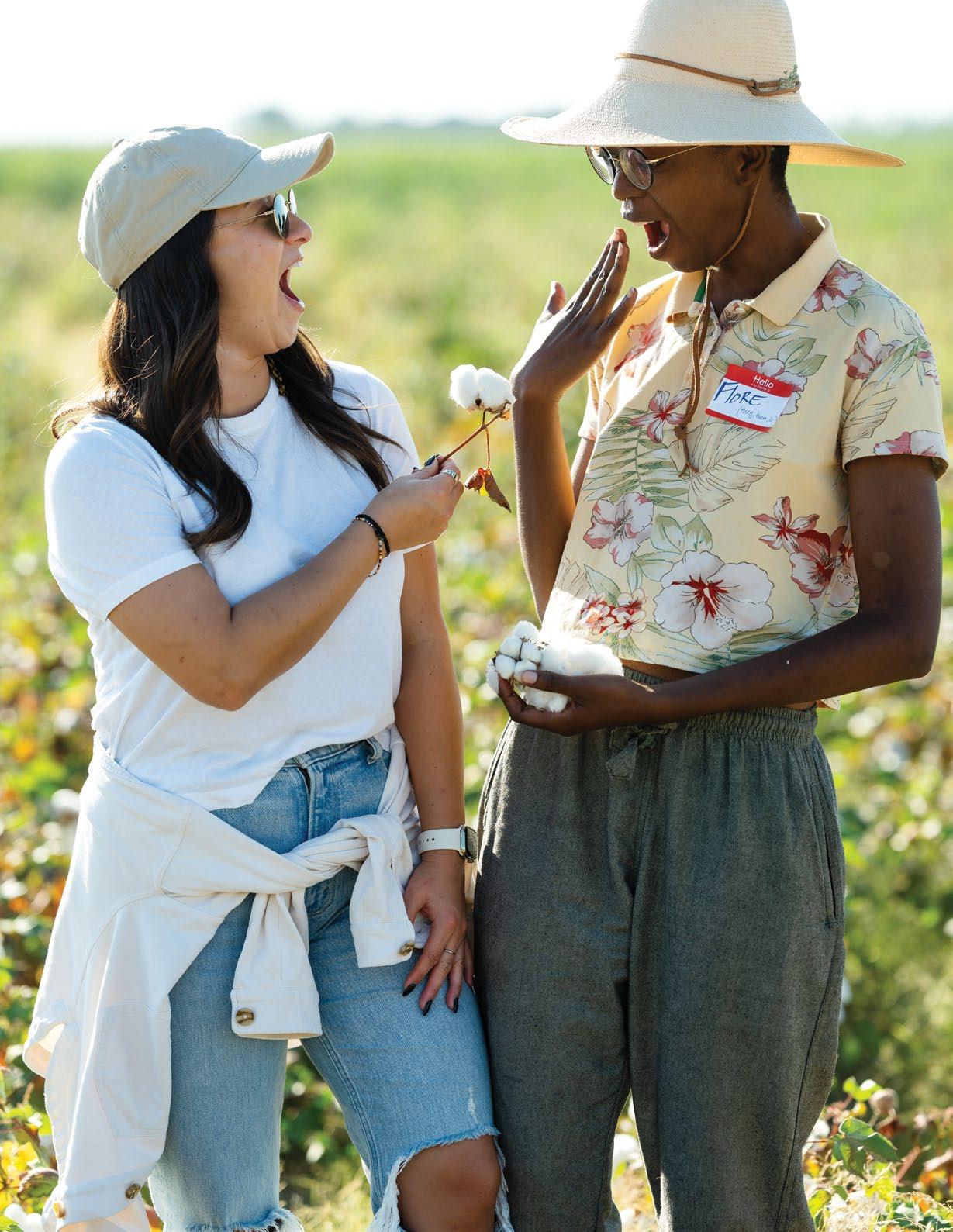
4
OUR PRIORITIES Climate Beneficial™ cotton grown as part of the California Cotton & Climate Coalition (C4), a partnership including farmers, fiber producers, and garment manufacturers
We work throughout our ecosystem of farmers, ranchers, mills, makers, designers, educators, and changemakers to create opportunities for learning, collaboration, and positive transformation.

6
OUR PROJECTS
Bodega Pastures is a Fibershed Producer Network Member, dedicated to building soil health and regional fiber systems
We look to the natural world
to
inform our process.
Building relationships and creating networks of support are not linear processes; we are inspired by branching systems, webs of connection, and interwoven relationships.
Refine
With input from stakeholders—producers, designers, consumers, and affiliates—we adjust and improve our models.
Release
Once something is working, we let it go. The models we design and establish can grow, replicate, transform, and thrive under the leadership of our vast network of co-creators.
Observe
We observe our surroundings carefully to inform our engagement with the land.
Prototype
We model a potential solution, and then we test it. And test it again, and again. We co-create models with our collaborators, supporting a shared vision.
Support
We remain in relationship with our network for the long term, offering support and continuing to grow our shared vision together.
Research
We learn, seek, and ask questions. We make connections and look for layers of meaning, influence, and context.
9 8
OUR PROCESS
2023 was Fibershed’s 10th year as a formal organization. One decade ago, we were finishing up a California Wool Mill feasibility study, a document that outlines what it will take to move our state and region forward on making use of the existing fiber we produce, something we’ve been woefully unable to do even though we are the largest volume producer in the United States. And yet, two amazing small mills have been built in these 10 years and a third mill successfully transitioned to the next generation owner. While the country continues to lose fiber manufacturing systems, our region trends in the opposite direction, thanks to support from many of you who are reading this.
To add to our regional textile industry’s strengths, the country’s largest garment worker population runs an array of facilities in Los Angeles, and this community has organized successfully in the last several years to monumentally improve labor conditions and protect the garment district from gentrification (thank you, Garment Worker Center!)
And yet, with all of this human talent and agricultural abundance—not to mention the numerous textile brands headquartered here—we are still processing less than 1% of the wool grown here, there are no systems to spin our state’s extra-long staple cotton (which we are a global leader in producing), and there remains no flax, hemp, or nettle processing, nor any capacity to blend recycled natural fiber from the numerous “waste” streams from clothing that is too far gone to be reworn or reused. Why does manufacturing continue to be something I’m taking the time to write about and work on? Because it proves (time and time again) to be the catalyst, enabler, and sustainer of climate change-mitigating and adaptive land stewardship, it promotes rural community regeneration, and it is the means to lower the ecological and social impact of urban population consumption.
These manufacturing systems are needed more than ever. This year, Fibershed laid the groundwork to expand our Climate Beneficial™ Agriculture Program nationally. We’ve been given a humbling vote of confidence by federal and state agencies to scale the work we began in California rangelands and pastures to the entire country, supported by hard-working partners that are discussed in this report. Millions of acres of land will become increasingly climate resilient and provide great societal benefit as we implement practices that will draw greater and greater quantities of carbon dioxide out of the atmosphere each year. Farmers and ranchers will produce tens of millions of pounds of Climate Beneficial™ fiber from these restored landscapes—verified for its ecological and social benefits—all of which will be entering markets. To ensure that the growers retain the value of what they grow, we will need to expand upon existing systems and build new circular manufacturing systems designed to empower and partner with our land stewards.
Thank you for taking this journey with us over this decade, for committing to building out the demonstrations and pilot projects, and staying by our side as this work scales. We are so grateful for your support.

 Rebecca Burgess Executive Director
Rebecca Burgess Executive Director
10 11 2023: Year in Review p. 12 Our Priorities: Regional Textile Economies p. 14 Climate Beneficial™ Agriculture p. 18 Education and Advocacy p. 24 Ten Years of Fibershed p. 32 Financials p. 34 Thank You p. 36 Support Our Work p. 38 CONTENTS A LETTER FROM OUR DIRECTOR COVER IMAGE Bowles Farming Company in Los Banos, California is a sixth-generation operation that grows cotton, vegetables, and native seed, and protects over 650 acres of wetland habitat for migrating bird species who travel the Pacific Flyway.
2023: Year in Review
The Global Fibershed Movement
We continue to expand our Affiliate Network Program, facilitating regional fiber communities across the world. p. 15
Fibers Fund
We are in partnership with Sustainable Agriculture & Food Systems Funders to grow the Fibers Fund to undergird and expand domestic manufacturing.
p. 17
REGIONAL TEXTILE ECONOMIES
Field Support and Training for Animal Husbandry
We created educational opportunities to support soilregenerating farming and ranching practices. p. 16
Community Events
We hosted large public events and marketplaces to showcase regional textile producers. p. 17
Climate Beneficial™ Fiber
We play a pivotal role in supporting cotton and wool producers whose practices prioritize soil health, support rural economies, and mitigate climate change. p. 19
California Cotton & Climate Coalition (C4)
We supported brand partners in bringing their first C4 cotton consumer products to market. p. 19
CLIMATE BENEFICIAL™ AGRICULTURE
Scaling Climate Beneficial™ Agriculture Nationwide
We continued to expand carbon farming practices through regranting partnerships to distribute major state and federal funding. p. 20
Carbon Farming
We funded carbon farming practices, and measured the impact of Climate Beneficial™ practices on the ground in Northern California. p. 22
Borrowed From the Soil: A Design Challenge
We hosted a year-long design challenge and culminating exhibition to connect local designers with regional farms and materials. p. 24
Learning Center Highlights and Vocational Training
We facilitated knowledge sharing and skill-building with the community via workshops and trainings p. 27
Annual Symposium
We brought together the Fibershed community, in person and online, with handson learning and opportunities to build relationships. p. 26
Increasing Visibility for Fiber and Textile Legislation
We brought attention to important policy impacting fiber systems to inspire engagement in government locally, regionally, and across the globe. p. 29
Learning Intensives
We went deep with community groups via educational intensives. p. 28
California Textile Policy Engagement
We are helping to shape emerging regulatory and industry priorities through our advocacy for healthy regionally based textiles. p. 30
Fibershed Amplifiers
We built a network of allies and amplifiers to strengthen our network and expand the reach of our mission. p. 29
Microplastics Education
We provided experiential learning and built public awareness about the ecological impacts of synthetic textiles. p. 29
13 12
EDUCATION
ADVOCACY
Regional Textile Economies
What would it take for a regional textile system to create an economy rooted in equity and resilience?
We envision thriving regional textile systems where locally grown and made goods are accessible and function as drivers for economic and ecological prosperity for everyone in the value network.
We can realize this vision by supporting local economies and creating opportunities for historically marginalized communities. To develop useful and beautiful goods that flow from soil-regenerating production systems, we need to be informed and shaped by the context of place.



The Global Fibershed Movement: Our Affiliate Program
Through our Affiliate Program, Fibershed is fueling a global movement of regional textile economies. We provide opportunities and support to the 71 regional fibersheds in the international Affiliate Network.
Through their work, our affiliate fibersheds connect the pieces of their own regional systems, working with fiber farmers, shearers, mills, artisans, and designers to produce clothing and other textiles rich with life and stories of the land and communities. Fibershed Affiliates are collectively revitalizing regional textile economies and extending the values of soil-to-soil textile systems around the world.
AFFILIATE SPOTLIGHTS
Pembina Fibreshed
Eastern Manitoba, Canada
In 2023, the Long Way Homestead Wool Mill, a smallscale facility for local producers, celebrated its five-year anniversary. The revival of regional mill infrastructure is critical to creating resilient regional fiber systems.
Acadiana Fibershed
Louisiana
A coalition of producers are revitalizing the production and processing of the regional heirloom varietal Acadian Brown Cotton, creating a cultural connection rooted in tradition and identity.
Fibreshed Scotland
and Central Appalachia Fibershed Scotland and West Virginia
These two regional Fibershed Affiliates are collaborating on the research and development of open-source technology micro-mill equipment to help small farmers add value to their natural fibers.
15 14
←
TOP Flax harvest in Blackburn England, part of the “Homegrown Homespun: Field to Fabric” project by the Northern England Fibreshed Photo by New England Fibreshed
BOTTOM LEFT Three generations of the Dufrene family at Bosco Cotton Farm and Fiber in Lafayette, Louisiana, members of the Acadiana Fibershed Affiliate
BOTTOM RIGHT Emerging open-source micro-mill technology, being developed by multiple Fibershed Affiliate partners
Regional Textile Economies
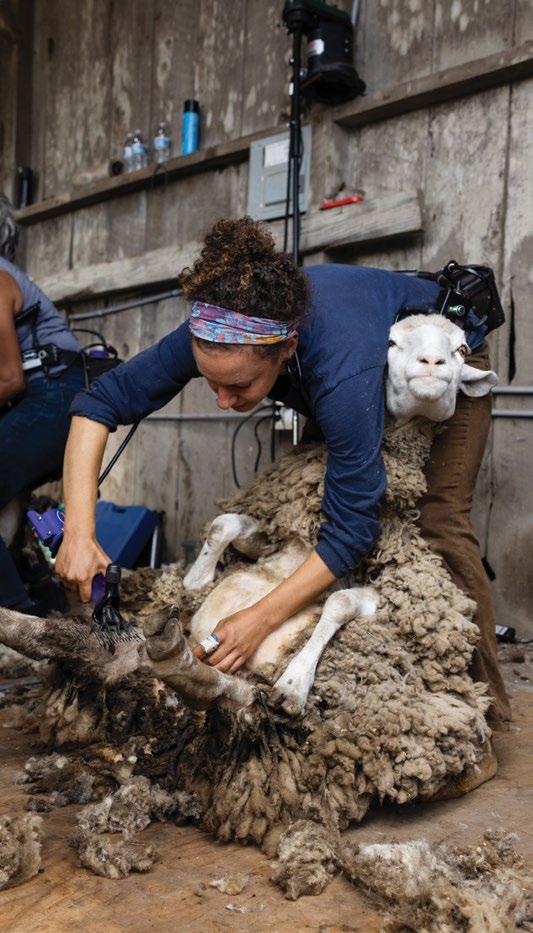
Field Support and Training for Shepherding and Animal Husbandry
To address the need for skilled sheep shearers in California and other parts of the United States, Fibershed supported opportunities for vocational development in partnership with the University of California’s Hopland Research and Extension Center (HREC) and the Santa Cruz County Resource Conservation District.
Fibershed supported two lambing school and three shearing school sessions in 2023 in partnership with HREC. Forty students completed the programs successfully, and we were pleased to offer scholarships to 50% of the students. We also held a Spanish-language Grazier Leadership Workshop, which covered financial skills, herd growth, and job bidding. These Northern California graziers are actively involved in fire fuel load reduction and integrated crop and livestock systems.
Recent shearing school graduates came together at Rancho Las Palmas in coastal California for a bilingual educational experience in both English and Spanish. Participants learned how to care for 100 sheep who support the farm’s soil health through grazing as part of an integrated cropland management approach.
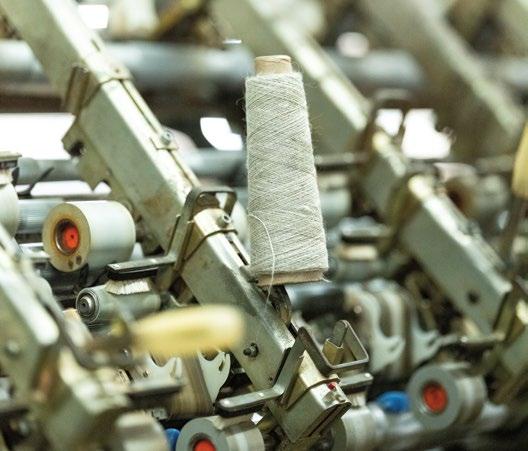

Fibers Fund
The Fibers Fund is a catalytic fund to support small U.S. natural fiber and textile producers and processors, with a specific focus on environmental equity. Sustainable Agriculture and Food Systems Funders (SAFSF) and Fibershed established the Integrated Capital Fibers Fund to facilitate the investment of financial capital into the domestic natural fibers and textile industry. The Fund is a direct response to the specific capital gaps identified in the SAFSF Fibers Roadmap Report and through the Fibershed Regional Fiber Manufacturing Initiative. In 2023, the Fibers Fund has distributed ten grants totaling $240,000. Learn more about the Fibers Fund’s impacts on page 35.
← Community Events
Fibershed produced and hosted three large public engagement events in 2023: Swap-Mend-Furoshiki, the Natural Dye Farmers Market, and the Summer Farmers Market.
Through these community offerings, our staff welcomed over 500 people to the Learning Center, connecting our community with 30 Fibershed farmers and artisans, regionally produced natural fiber goods, and circular economic and skill-building opportunities through clothing swaps, mending, over-dyeing, furoshiki, and family-friendly fiber arts workshops.
180 total Northern California Producer Network Members farms
112 artisans
We welcomed
5
63 mills
18 new members to our Northern California Producer Network in 2023 farms 11 artisans 6 mill 1
current Affiliate Network Members, internationally
31%
71 increase in the number of Affiliate Network Members since 2020
$231,000
Since 2017, we’ve granted to 83 projects as part of our Fibershed Affiliate Network micro-grant program
2023 Affiliate Working Groups and Regional Hubs
Bast Fiber Working Group
Waste Wool Working Group
European Hub
Canadian Fibreshed Network
17 16 ←
LEFT Apprentice shearers training on the job— providing shearing, hoof trimming, and vaccinations— at Rancho Las Palmas in Davenport, California
OPPOSITE PAGE, TOP Fiber twisted into yarn at an industrial wool mill
OPPOSITE PAGE, BOTTOM Community members at the Swap-Mend-Furoshiki event
←
NORTHERN CALIFORNIA PRODUCER NETWORK
AFFILIATE NETWORK
Climate Beneficial™ Agriculture
How do we stimulate a climate-friendly, lifepromoting textile economy?
Healthy soil supports our world—it is the basis (literally and figuratively) on which life and civilization rest. The future of our world is ensured when we prioritize agricultural practices that build soil, instead of those that deplete soil and create commodities in surplus.
Like food, fiber crops are part of an interconnected agricultural system that impacts health, social justice, and the environment. These familiar yet often overlooked agricultural products include plantbased fibers like cotton, hemp, and flax and animal-based products like wool, alpaca, and leather.
We work directly with land stewards to implement land management practices that build soil carbon and increase productivity naturally.
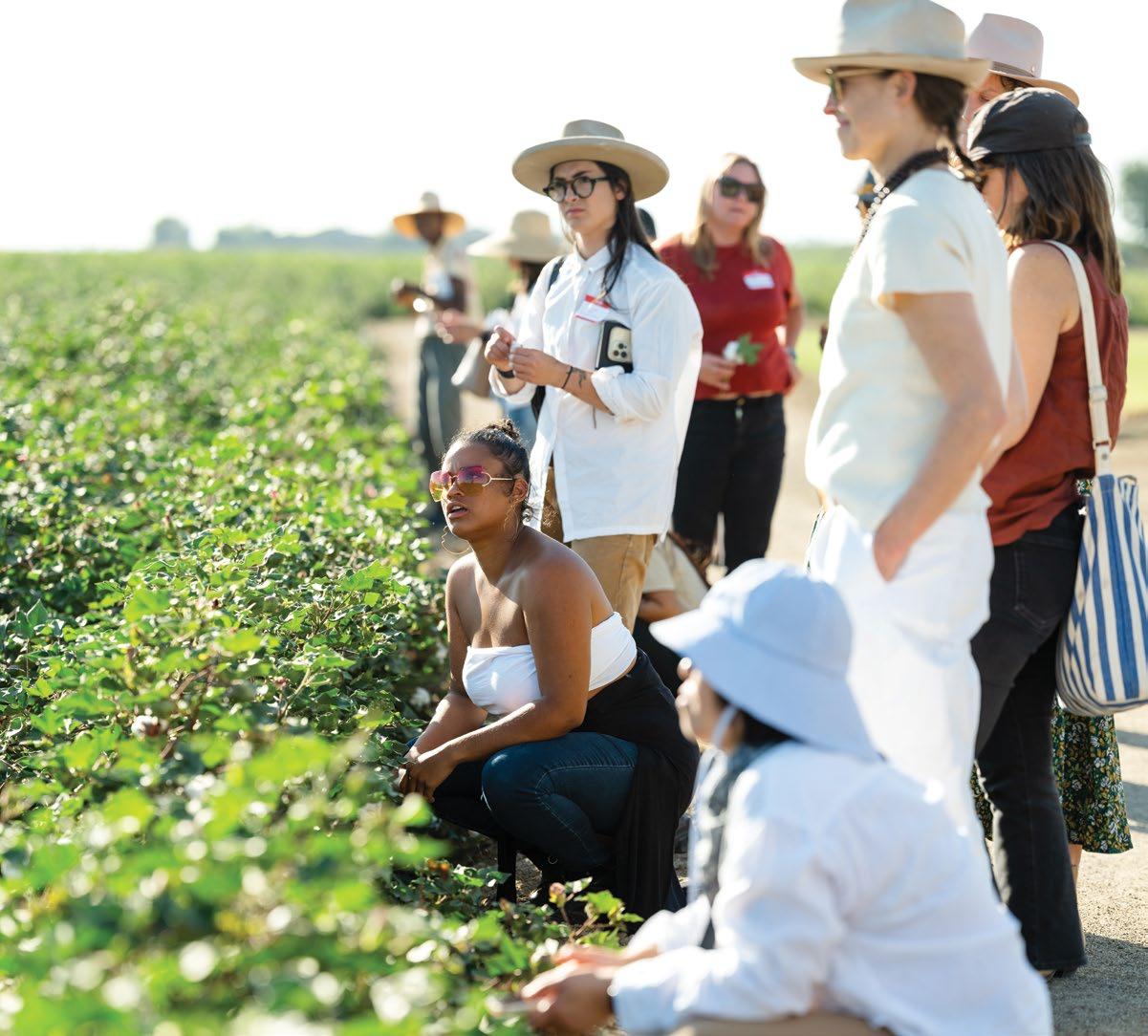
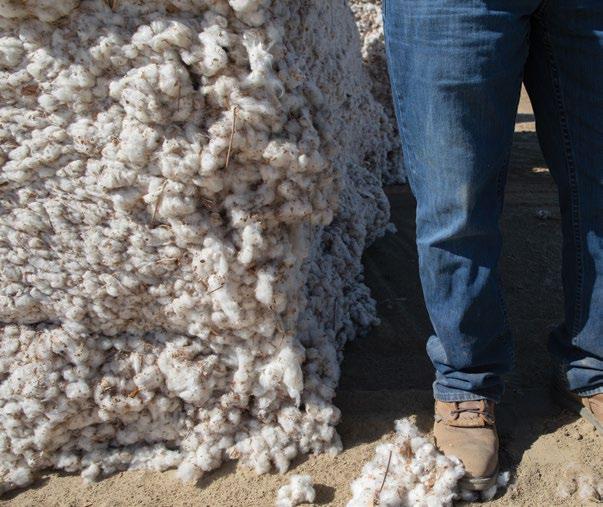

Climate Beneficial™ Fiber
Fibershed’s Climate Beneficial™ Program supports farmers and ranchers in implementing land stewardship practices that accelerate carbon drawdown, and builds markets around the natural fiber they produce. In addition to climate change amelioration, many of these practices have significant co-benefits, such as: improving soil health and ecological function, increasing on-farm biodiversity, and boosting soil water-holding capacity, all while producing high-quality regional and domestic fiber and textiles.
This program partners with cotton and wool producers across the country, technical assistance providers, scientists, researchers, supply chain partners, and brands in order to build regional economies around climate-smart fiber production.
California Cotton & Climate Coalition (C4)
C4 works to restore our connection with regional working landscapes; to that end, we coordinated two days of farm tours for 40 people at Pedretti Ranches, Bowles Farming Co., and Stoneland Farm in October of 2023. We provided presentations on San Joaquin Valley land use history, climate change impacts, biogeochemistry, and carbon cycling, and we provided in-field demonstrations in small groups on topics including water infiltration and soil aggregation testing.
Our brand coalition members saw the fruits of our precompetitive farm-to-yarn program this year; Reformation, Outerknown, Coyuchi, Trace, and Mate the Label all brought consumer products to market from fields that they have become more intimately connected to and from farmers who they know on a first-name basis. These brands provided our community the added benefit of using excess production to make 1,300 yards of the most affordable and accessible T-shirt-weight fabric we’ve ever produced at a regional scale. Thanks to our coordination across the value network, we’re seeing farm-forward textiles in the creative hands of design students, micro-designers, and a host of new community members.
19 18 ←
TOP 2023 C4 Cotton Tour field days connecting designers, manufacturers, mills, and cotton producers to their supply chain
BOTTOM LEFT Cotton bales at the West Haven Gin
BOTTOM RIGHT Robert Martinez, a skilled cotton gin operator supporting the C4 program
Climate Beneficial™ Agriculture
Scaling Climate Beneficial™ Agriculture in California and Nationwide
Fibershed was selected to administer two multi-year grants, providing financial and technical assistance to fiber producers to implement climate beneficial land stewardship. In 2023 we worked with partners to develop administrative structures, outreach strategies, and new technology platforms to hold and grow this work. In 2024 we will support project development, conduct outreach to new growers, and issue funding to expand the uptake of carbon farm practices.
Support for cotton producers
Support for wool producers
Support for cotton + wool producers
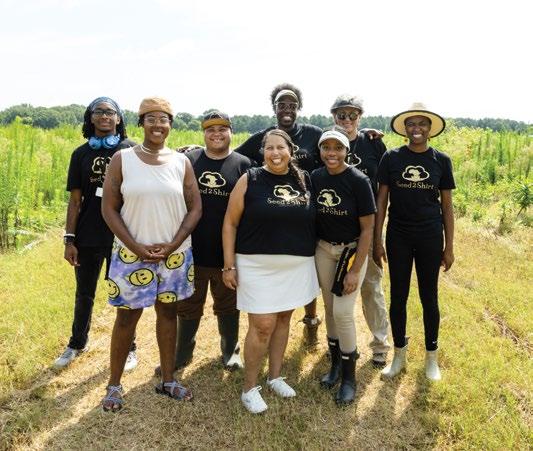
As part of a USDA Climate-Smart Commodities Grant project, we have partnered with the National Center for Appropriate Technology (NCAT), Carbon Cycle Institute, Colorado State University, New York Textile Lab, and Seed2Shirt to scale the Climate Beneficial™ fiber program in five regions across the country, with the goal of expanding nationwide. The project aims to meet the equity goals of the Justice40 Initiative and will prioritize engagement with traditionally underserved producers.
Through a California Healthy Soils Program Block Grant, we will distribute $4M of funding over three years to fiber ranchers and farmers in California, with a priority focus on Fibershed Producer Network Members and historically underserved populations.
Learn more about these grant programs on page 35.
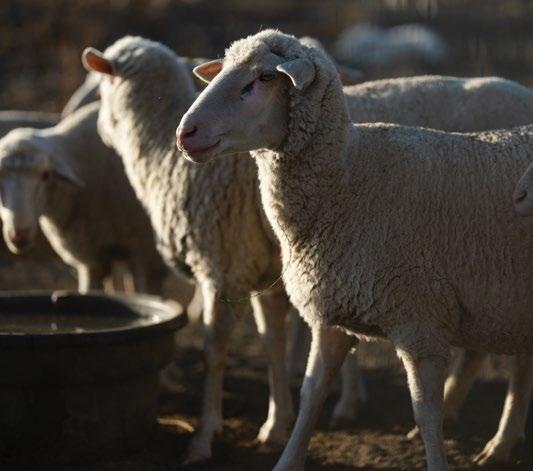
←
Climate Beneficial™ Wool
The Climate Beneficial™ wool pool aggregates fine wool from ranches within Fibershed’s producer program, and with the support of a for-profit partner, moves those wool bales to the last large-scale wool washing, combing, and pin drafting station in the United States, located in South Carolina. The wool is then spun in North Carolina (due to a complete lack of fine-gauge yarn spinning in California). Once the yarn is spun, it is then provided to a range of designers across the United States. Fibershed provides ranch- and farm-specific reports to the designers that showcase all the existing and new practices that are being implemented to benefit the climate, improve soil health, and enhance the welfare of the flocks. 2023 brought many beautiful Climate Beneficial™ wool goods to market with some new and some loyal fiber designers. Designers included Mara Hoffman, Vincent St. James, Wolhide, All Species Studio, GynnaMade, and an array of new designers, many of whom took part in the Borrowed from the Soil Design Challenge. A ranch tour was held at McCormack sheep ranch and provided over 30 design students, brands, and micro-designers an opportunity to meet the sheep, the people, and the amazing dogs who steward our California rangelands.
There are
180,000+ acres currently enrolled in the Climate Beneficial™ Program
150 carbon farming practices implemented by Climate Beneficial™ producers in 2023
599 carbon farming practices implemented by Climate Beneficial™ producers since the program began in 2016
Since the inception of the Climate Beneficial™ Program in 2016, enrolled producers have implemented carbon farming practices that we estimate will sequester
130,000+ metric tons of CO2e over the next 20 years
OPPOSITE PAGE, TOP Focus areas of USDA ClimateSmart Commodities Grant
OPPOSITE PAGE, BOTTOM Seed2Shirt is one of our USDA Climate-Smart Commodities partners, focused on bringing agricultural technical assistance and project funding to Black growers throughout the Southeastern United States
THIS PAGE Sheep growing Climate Beneficial™ wool at McCormack Ranch in Solano County, California 531 acres +
In 2023,
1 million pounds of cotton
grown within the tomato, corn, wheat, garlic, cantaloupe, and onion rotations was
3 million metric tons of CO2e verified Climate Beneficial™
The Climate Beneficial™ agricultural practices we will fund over the next five years—as part of the USDA Climate-Smart Commodities Grant—are expected to draw down an estimated over 20 years
21 20 ←
Carbon Farming
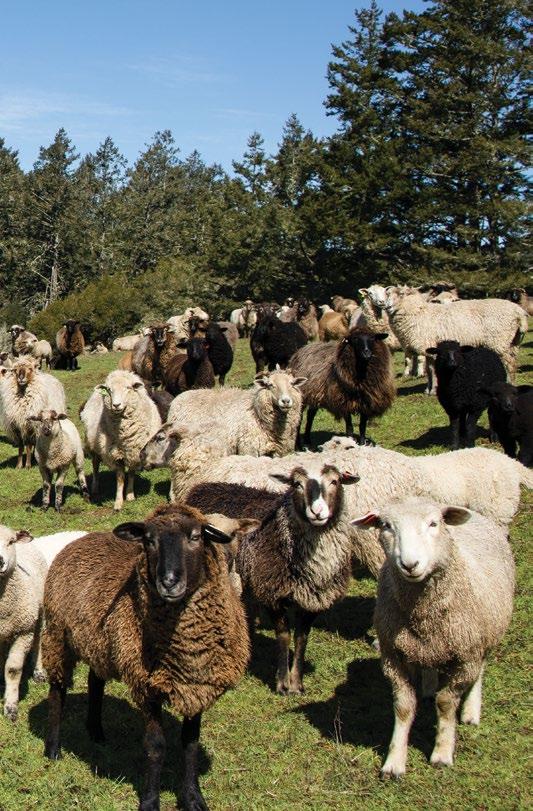
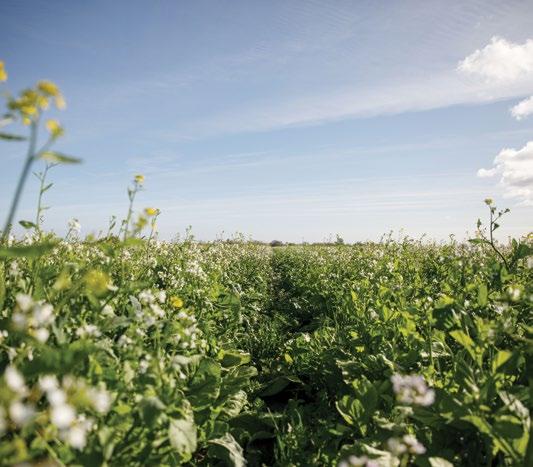
Measuring Our Impact
In 2023, producers in the Climate Beneficial™ Program collectively implemented a total of 150 carbon farming practices, accounting for an estimated 17,905 Mg of CO2e sequestered and 23,677 Mg CO2e projected to be drawn down over the next 20 years. This is the equivalent of taking over 5,200 gas-powered cars off the road for one year.
Prescribed grazing, compost application to rangelands, and cover cropping were the most commonly implemented practices. Over the life of the Climate Beneficial™ Program since 2016, compost application on rangeland accounts for the largest amount of carbon drawdown, sequestering an estimated 72,123 Mg Co2e over the next 20 years. This represents the majority of the 20-year carbon impact for grazed systems seen in the chart to the right, as a single application of compost to a rangeland causes continued soil carbon drawdown each year for decades.
Excerpts from our 2023 Carbon Farm Impact Report, which highlights the collective carbon drawdown impacts of Climate Beneficial™ producers. See the complete report at fibershed.org/23-CFIR.
Carbon Farm Seed Fund
Our Carbon Farm Seed Fund was created to provide direct financial assistance to producers enrolled in the Climate Beneficial™ Program to implement carbon farming practices. In our 2023 round we awarded over $62,000 to 14 producers to support carbon farming projects, which we estimate will draw down over 1,600 Mg CO2e over the next 20 years.
Climate Beneficial™ Program
TOTAL PARTICIPATING PRODUCERS AND ACREAGE
CB™ Verified
+ 147,669 acres24 producers
CB™ Transitional
+ 37,850 acres45 producers
New producers
+ 172 acres9 producers
TOTAL
185,691 acres+78 producers
currently enrolled in the Climate Beneficial™ Program
Cumulative CO2e Drawdown by Category
20-year impact of all practices
Total
from
What Is Mg CO2e?
Mg refers to metric tons (also known as MT, “tonnes,” or “megagrams”) and is equal to 1,000 kilograms or about 2,240.6 pounds. It is a common way of quantifying and measuring greenhouse gas emissions.
CO2e (or “carbon dioxide equivalent”) is the standard unit for quantifying greenhouse gas emissions, where 1 Mg CO2e is the global warming equivalent of 1 metric ton of carbon dioxide.
Why 20-year impact?
Some practices such as planting trees or applying compost to rangelands continually draw down carbon over the years, even if just done once.
Other practices, such as cover cropping, must be done annually to have continued carbon drawdown. These metrics show the impact of practices that have already been implemented by producers, and these measurements differentiate between practices with one-time and 20-year impact.
TOP Sheep grazing at Bodega Pastures, Sonoma County, California
23 22 ←
BOTTOM Multispecies cover crop in cotton field
←
2023 PRACTICES AND ENTIRETY OF CLIMATE BENEFICIAL™ PROGRAM Fibershed Carbon Farm Seed Fund, Northern California Producer Network, and California Cotton & Climate Coalition (C4) 9,3829,382 100,000 90,000 80,000 70,000 60,000 50,000 40,000 30,000 20,000 10,000 0 Sequestered CROPLANDS 20-year impact Sequestered GRAZING & PASTURE LANDS 20-year impact Sequestered AGROFORESTRY 20-year impact Sequestered RIPARIAN SYSTEMS 20-year impact
CO2e drawdown
practices in 2023 50,699 2,625 298 1,720 14,617 104,359 Metric Tons CO 2 e
CO2e drawdown
all practices since 2016
from
$62,000$308,506 14 75 # of projects Amount awarded Project acreage 2023 Cumulative 555 14,552 1,641 Mg 11,911 Mg 20-year CO2e drawdown
Education
What does it take to shift peoples’ perspective and change their behavior?
Education can encourage new paradigms of thought and action by enabling informed choices.
A large part of Fibershed’s education program works to connect people to the source of their clothing and help them understand how their choices affect our environment and collective future.
Our goal is to shift demand towards ecologically sensitive, locally grown and locally made products. We do this by connecting the local community to the ethnobotany of their landscape, supporting producers and designers in more resilient and climate beneficial practices, and training educators to pass along their knowledge.
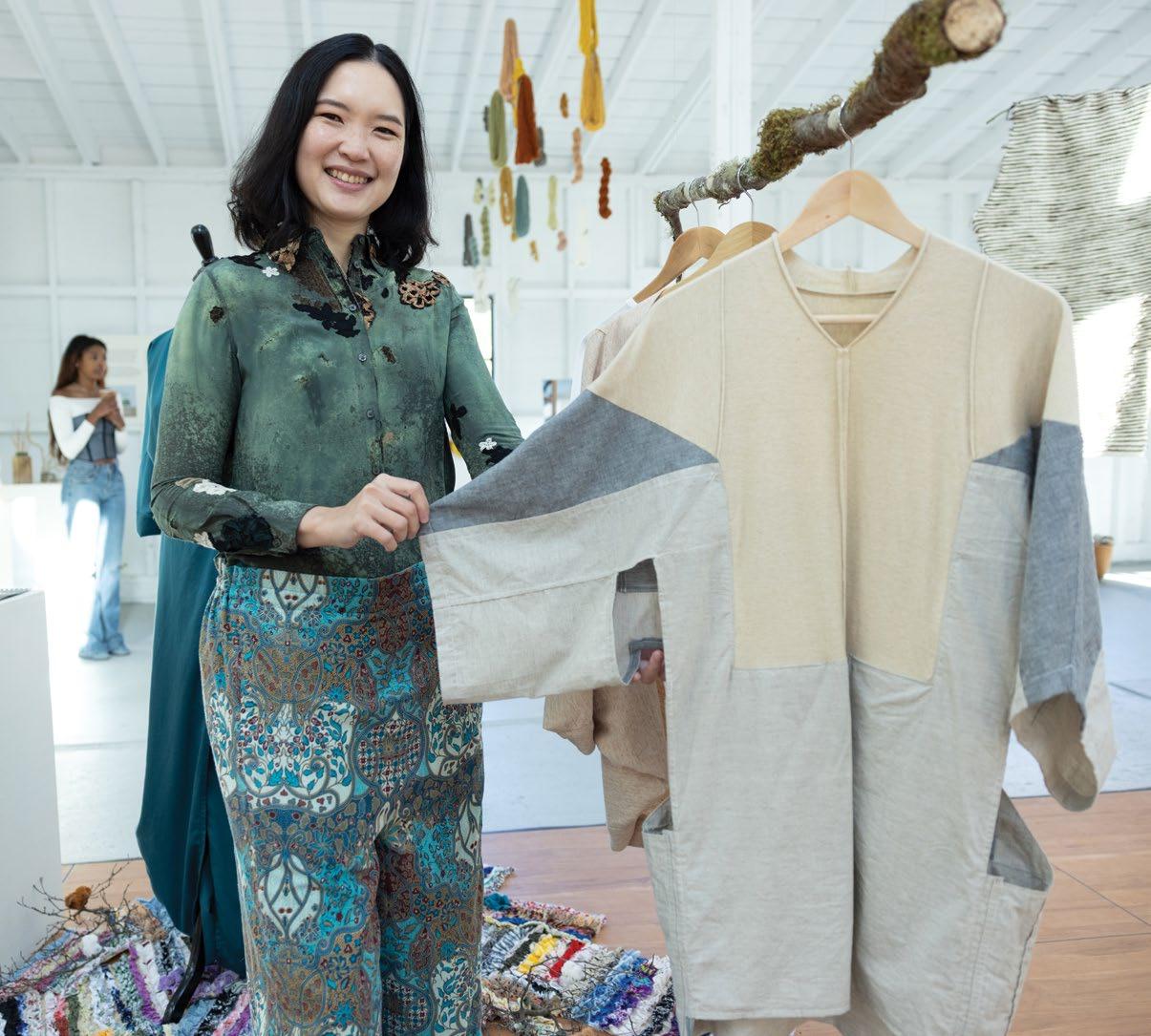

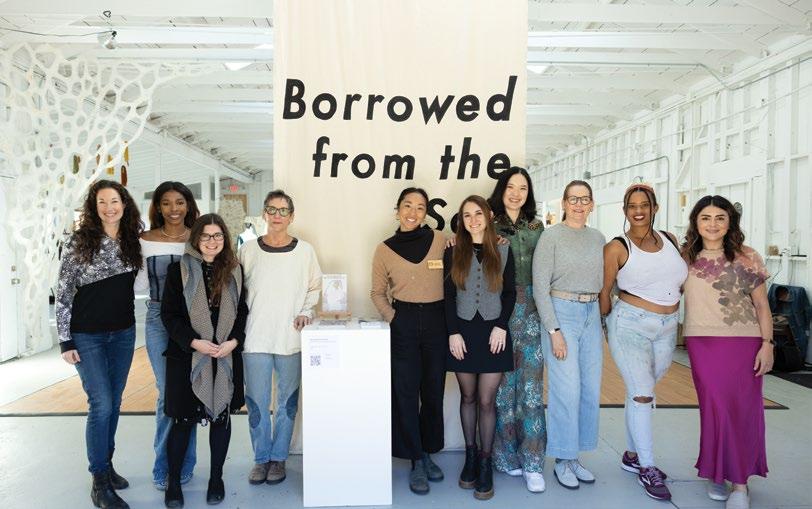
Borrowed from the Soil: A Design Challenge and Exhibition
Fibershed launched a year-long Design Challenge in March 2023 to encourage regional designers to explore beyond the product, connecting their process and materials with the farmers, the people, and the land in our region, while also looking at how design choices can embed longevity, compostability, and respect for the soil.
In November, Fibershed hosted its “Borrowed from the Soil” Design Exhibition, which explored a future vision where the way we produce and use one of our most basic human necessities – clothing—can support the longevity and health of our local ecosystems and communities.
We invited community members to help build a collective understanding of the interconnectedness between material, design, and consumer choices, and the land and people whom these choices impact.
Fibershed collaborates with design schools in Northern California and beyond to help shape the future of fashion. Through these collaborations, we connect the next generation of sustainable fashion designers to regional textile material sourcing and supply chains. Students gain an understanding of how a soil-to-soil approach is not only urgently needed, but possible.
This year, Fibershed partnered with the Fashion Merchandising and Management Program at California State University, Sacramento. This program prepares students for careers in the fashion industry, emphasizing the contemporary and historical ways of meeting consumers’ economic, physiological, aesthetic, psychological, sociological, and cultural needs.
25 24
←
TOP Mira Musank, Design Challenge and Exhibition participant
BOTTOM LEFT Tonisha Sade, Design Challenge and Exhibition participant
BOTTOM RIGHT Participants in the Design Challenge
Education
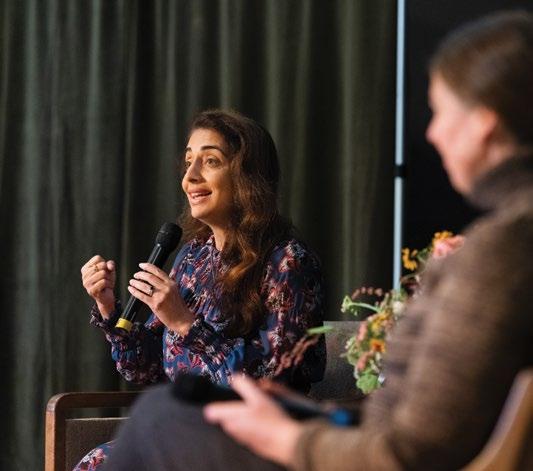
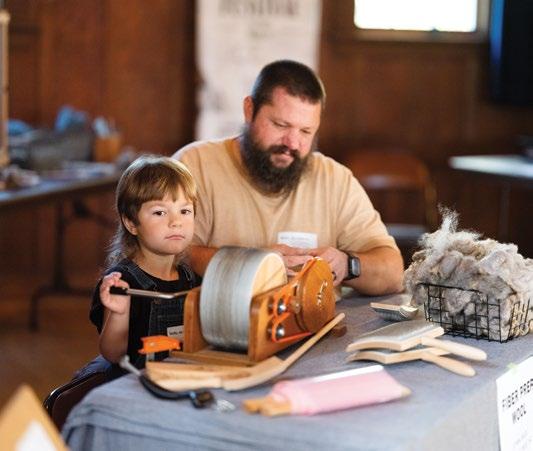
←
Annual Symposium: Relationships of Change
This year’s symposium, “Relationships of Change: the Interdependence of People, Policy, and Materials,” explored the interconnectedness of the people, policy, and materials that are necessary for transforming our soil-to-skin textile system.
The event connected the global community by bringing together changemakers, designers, farmers, ecologists, scientists, and the general public to hear from those working on critical issues of fossil fuel divestment from textiles and fashion, garment workers’ rights, and new laws aiming to internalize the costs of our textile “waste” while catalyzing shifts in material choice and design. We also heard from Fibershed Affiliates, the Fibers Fund, and efforts to bring climate-benefiting farming and ranching incentives to the national scale. We hosted this year’s gathering as a hybrid event: both in person in Point Reyes Station and online via Zoom. For the first time, we organized a concurrent Learning Activities Showcase next door, with demos and hands-on activities from Fibershed Producers, which was open to the public, free of charge.

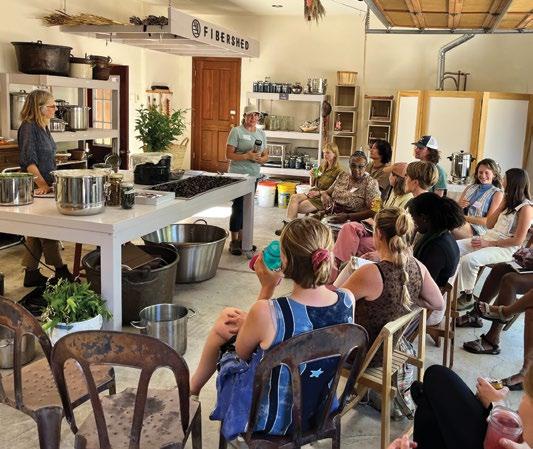
←
Learning Center Highlights
The Fibershed Learning Center hosts events and workshops for the Northern California fiber community, forging connections to fiber and dye, and creating opportunities for connecting within the community.
We organized and hosted 36 skill-building workshops attended by 374 students, providing 47 scholarships.
Learn more about three community events we held at the Fibershed Learning Center on page 17.
50+
school garden educators served through learning intensive workshops
300+
Fibershed provided personalized education to more than
1,700 people participants in the annual symposium, remote and in-person
Key Education Partners in 2023
Fashion Merchandising and Management Program at California State University, Sacramento
California College of the Arts
Department of Design and Merchandising at Colorado State University
through presentations within classrooms and at community events
36
Learning Center workshops
2023 at the Learning Center Workshop students
374 Scholarships provided 47
Learning Intensives for Educators and Community Groups
We provided hands-on learning sessions for community groups, including a daylong bilingual workshop for youth and families from the Raizes Collective of Santa Rosa, and visits from four area high school programs.
We hosted two daylong trainings for 50 school garden teachers in partnership with the School Garden Network. Teachers received instruction, resources, plant materials (seedlings and seeds), and fiber and dye curricula for their school garden classrooms. “Train-the-trainer” intensives expand the impact of the Learning Center site.
We’ve sown and planted more than 22,500 native plugs and directly seeded native flora yielding over 15,000 annual diverse wildflower meadow species, along with harvesting and processing 750 pounds of Japanese indigo
20%
of the 3,956 students and community members that have come to the Learning Center to date have been provided access to events or classes free of charge
27 26
←
THIS PAGE, TOP Ayesha Barenblat, CEO of Remake, and Fibershed Executive Director Rebecca Burgess at the Fibershed Annual Symposium
BOTTOM Roy Clemes and son, demonstrating fiber carding at the Learning Activities Showcase, Annual Symposium
OPPOSITE PAGE, TOP Participants of Mushroom Dye workshop by Alissa Allen, at the Fibershed Learning Center
OPPOSITE PAGE, BOTTOM Members of the School Garden Network at a teacher training at the Fibershed Learning Center Photo by Fibershed staff
How can we collaborate, connect, and communicate the importance of healthy regional natural fiber textile systems?
Trends in the textile industry require policy changes to address waste, pollution, labor inequity, and a growing disconnection from our local ecosystems. Natural fiber textiles—sourced and cycled within equitable, regional production systems—can play a role in solving for many of these challenges, but they must be upheld by public policy that recognizes their value.
Every day our local, state, and federal governments are making critical decisions about investments, regulations, land-use laws, and more. These decisions largely determine how our textile economies will affect ecosystems, workers, and our communities’ well-being.
Building public and institutional awareness of the value and opportunities provided by healthy regional textiles, we are cultivating momentum for change. Fibershed provides direct input on policy discussions leading to legislative and regulatory support for soilto-soil material systems.
Over 60% of clothing sold today is made of plastic.
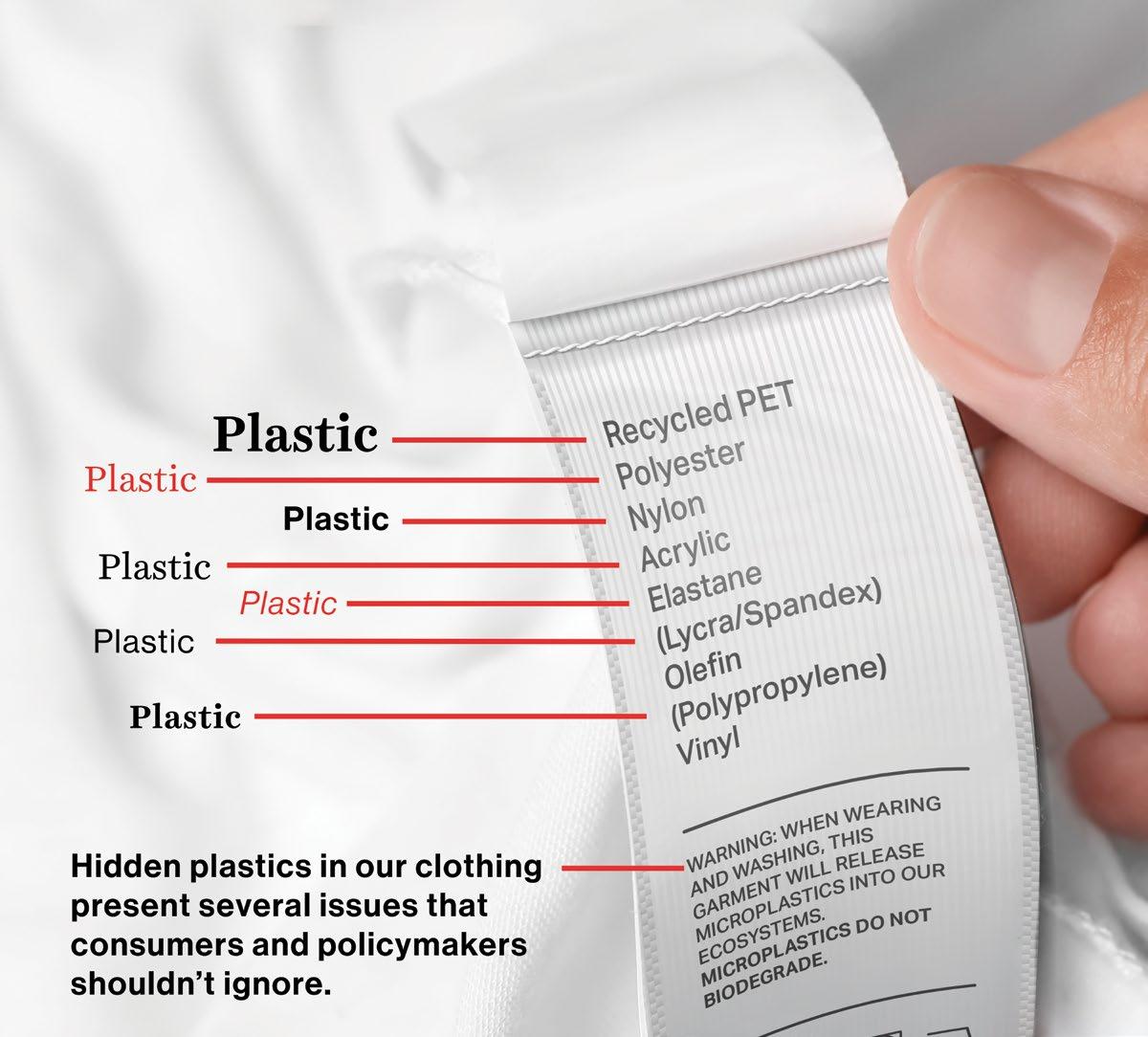
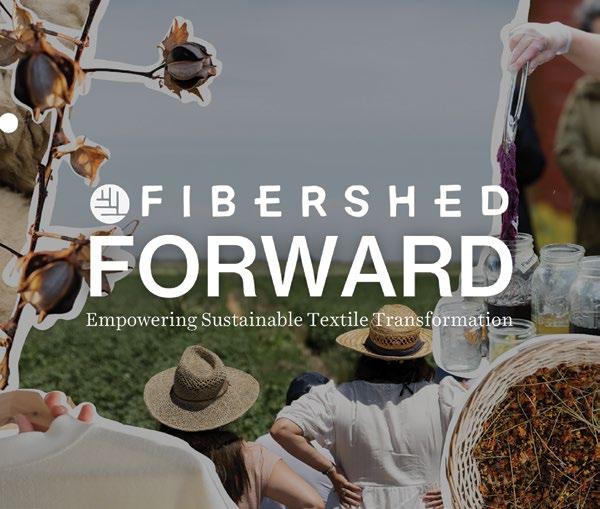
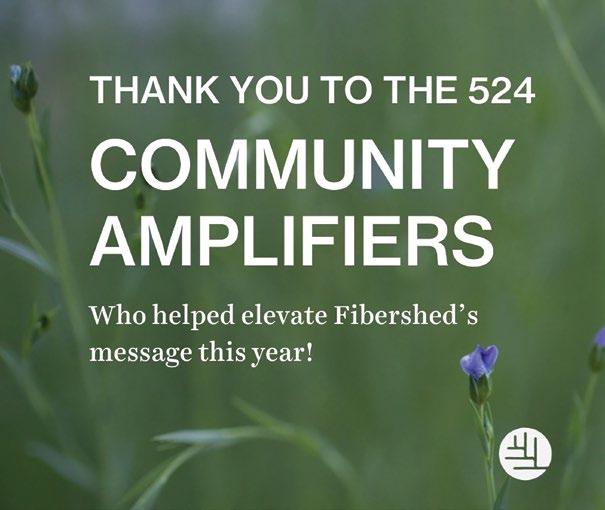
←
Increasing Visibility for Fiber and Textile Legislation
Across the world, advocates are calling on lawmakers to increase investments in regional fiber systems, protect farmworkers and garment workers, and develop a bold vision for a circular economy.
In 2023, through a series of engaging, information-rich articles on our website, Fibershed provided a unique and needed voice for holistic solutions addressing textile waste and the true source of microplastic microfiber pollution.
In our article “Textile and Fiber Policy 101: Influential New Legislation You Should Be Paying Attention To,” we shared four influential pieces of legislation in clear language, in an effort to encourage involvement and advocacy at the regional, state, and national level.
Fibershed Forward
We launched the Fibershed Forward email storytelling campaign in 2023, introducing community members, makers, activists, growers, and leaders who are effecting change and inspiring action in the world of textiles and clothing. This campaign utilizes digital storytelling to educate, enriching the reader’s ability to advocate and communicate on behalf of the Fibershed community’s goals.
Fibershed Community Amplifiers
In 2023, Fibershed launched a Community Amplifier program after an overwhelming response to our annual survey revealed that people were looking for more opportunities to activate their networks in support of transforming our material culture.
Every month, the 524 (and growing!) Fibershed Community Amplifiers elevate resources, research, and stories that advance nature-based and equity-centered textile systems. With their support, we were able to activate an online network to respond to critical policy updates and circulate inspiring stories.
29 28
Advocacy
TOP Graphic from Fibershed’s 2023 Microplastics social media education campaign Design by Bark Media
BOTTOM LEFT Graphic promoting our Fibershed Forward email campaign Design by Bark Media
BOTTOM RIGHT Graphic thanking our 524 Fibershed Community Amplifiers Design by Bark Media
Advocacy


↑ Microplastics Social Media Advocacy
Harnessing the connective power of social media, in 2023, Fibershed developed a popular series on Instagram and other platforms that shared facts and provocations about microplastics and clothing in order to uplift microplastic fibers in the awareness of mainstream audiences.
We saw tremendous engagement on this series: views, likes, shares, and comments. This campaign increased our following, which allows Fibershed to have an even more impactful voice on future social media campaigns.

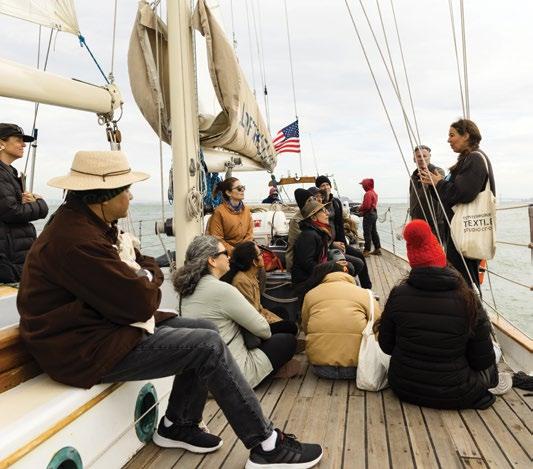

←
Microplastics Experiential Education
Across the year, we provided in-person experiential learning about the ecological impacts of synthetic textiles. This fall, Fibershed presented at a learning adventure organized by Materevolve, a consultancy led by textile scientist Krystle Moody Wood and ocean advocate and scientist Carolynn Box. Drawing from our work with farmers, textile companies, and policy partners, we outlined the role that natural fiber systems can play in addressing microplastic pollution and ocean health to an audience of 40 textile brand representatives and sustainability and policy experts.
California Textile Policy Engagement
Fibershed brings these important advocacy topics into state textile policy work through participation in the Statewide Textile Recovery Advisory Committee hosted by the California Product Stewardship Council (CPSC). As a Committee member, we bring perspectives from the Fibershed community into monthly policy discussions affecting state legislation like EPR bill SB707 and regulatory programs for textiles. We also provided direct input through state, federal, and international regulatory comment opportunities.
In 2023, we’ve seen a in email subscribers...
10% increase and a in visitors to fibershed.org
40% increase
2,102 new followers
We gained on LinkedIn in 2023
Our posts on LinkedIn led to a in traffic to fibershed.org, compared to 2022 923% increase
Our posts on Facebook led to a in traffic to fibershed.org, compared to 2022 345% increase
Our 2023 microplastics social media campaign received
41,000
total impressions across Facebook, Instagram, and LinkedIn
Our four policy-based call-to-action articles of 2023 received across Facebook, Instagram, and LinkedIn
49,495 impressions
We delivered comments in January and August to California’s Ocean Protection Council on Statewide Microplastics Strategy implementation
Our Executive Director Rebecca Burgess co-wrote an op-ed for Science Norway, responding to false solutions of washing machine filters as a means to mitigate microplastic fiber pollution
We submitted feedback on SB707-Extended Producer Responsibility (EPR) framework proposed for textiles in California
31 30
COMMUNCIATIONS
POLICY
THIS PAGE Graphics from our Microplastics social media campaign
OPPOSITE PAGE, TOP Experiential learning participants aboard sailboat “Call of the Sea” in the San Francisco Bay
OPPOSITE PAGE, BOTTOM Fibershed informational display at a CPSC event on textile recovery for policymakers and industry representatives Photo by Fibershed staff
←
2014
Ten+ Years of Fibershed
In the decade since Fibershed’s founding, our projects and programs have grown into thriving regional networks and fiber systems, all working towards healthy communities and a healthy planet.
Here are ten milestones for ten years of Fibershed. Read more about each one, and see additional milestones at fibershed.org/history
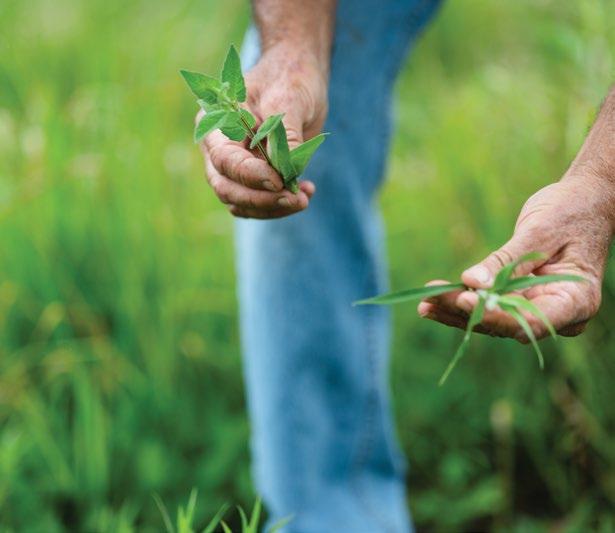
Rooting Down and Expanding
The Grassroots Fibershed Movement
One year after Fibershed’s non-profit was established in 2013, Fibershed developed its Affiliate Program to support and promote the development of regional soil-tosoil fiber systems communities around the world Since the program’s establishment, the network has grown to 71 (and counting!) Fibershed Affiliates.

2015
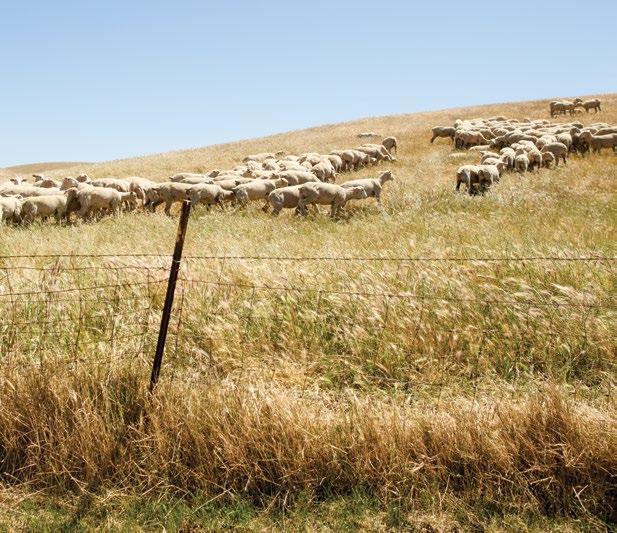
2019
Growing Manufacturing
With the RFMI
The Regional Fiber Manufacturing Initiative provided legal, financial, alternative business model, and engineering technical assistance to multiple regional entrepreneurs who have gone on to develop natural fiber businesses within our community and in different regions within the U.S.
Restoring Soil Health Climate Beneficial™ Agriculture
Fibershed’s goal to restore ecosystem health and stabilize our climate was realized through the development and expansion of the Climate Beneficial™ Verification program, which offers technical and financial support for carbon farming practices, and builds markets for fiber coming off of these landscapes.
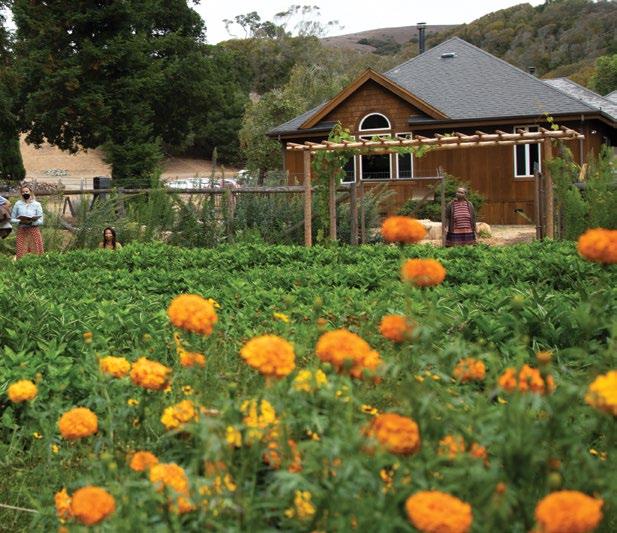
Spreading Knowledge
Fibershed Learning Center
Fibershed opened the Learning Center, a multi-use space in Point Reyes Station that includes a hands-on lab, a small farm, and multiple demonstration sites, connecting the community with local fiber and dyes. The Learning Center hosts opportunities to connect, learn, and exchange knowledge unifying a community. The space is actively evolving in collaboration with regional partners.
2011
A Seed is Planted The Origins of Fibershed
It all began with an experiment by our founder and Executive Director, Rebecca Burgess. What would it take to wear clothing made only from materials grown, woven, and sewn in her local area of Northern California? This question led Rebecca to a network of connections with farmers, ranchers, and artisans laying the groundwork for a regional textile economy and the entire concept of a “fibershed.”
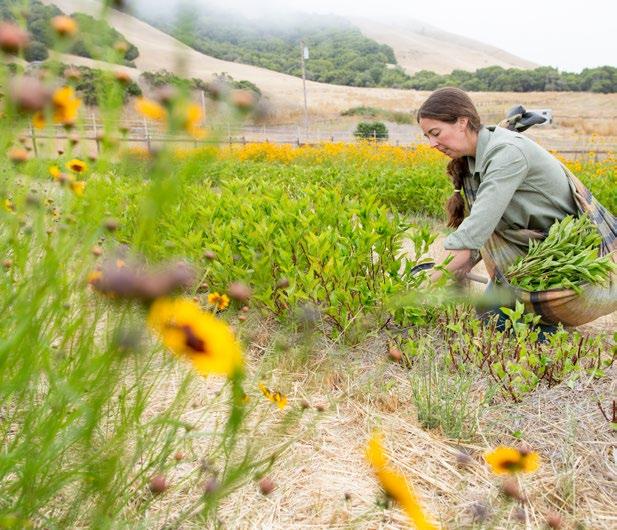
2013

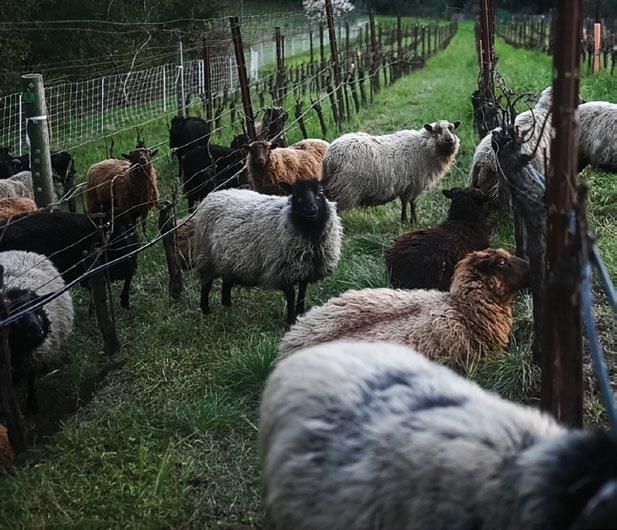
2016
Integrating Systems Crop and Livestock
Partnering with the Plant Sciences Department at UC Davis, Fibershed cohired a PhD candidate who conducted seminal research on the soil health and ecosystem dynamic benefits of integrating livestock into perennial cropping systems. This research led to the development of business curricula for contract graziers, a suite of Spanish-language grazier trainings, and an ecosystem service credit for sheep in vineyards.
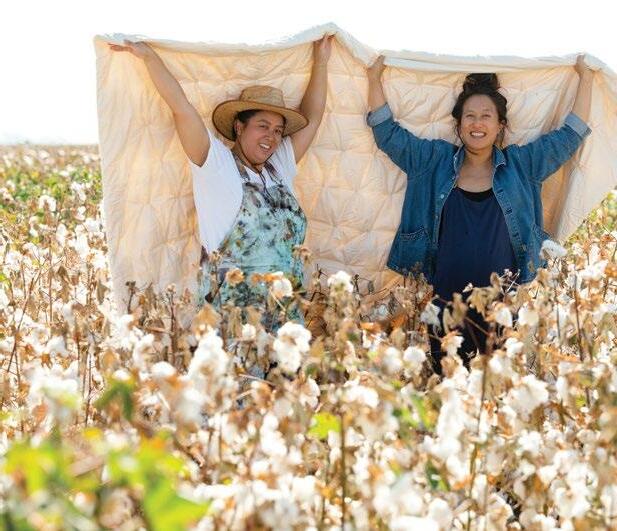
2021
Scaling Solutions
California Cotton & Climate Coalition (C4)
Fibershed helped launch C4 by inviting all stakeholders from seed to product to join us in this effort to forge a path for farm-forward Climate Beneficial™ sourcing to become the norm, and for all partners working with the coalition to build the expertise to design textiles in this way.
Envisioning the Future Wool Feasibility Study
Partnering with engineers and textile specialists, Fibershed produced its Wool Mill Vision, outlining a viable regional milling economy fueled by local wool resources. Fibershed constructed a technical roadmap for a closed-loop mill design utilizing renewable energy, water recycling, and composting systems, created to support local farms and ranches while providing livelihoods and ecologically sensitive, regional goods.
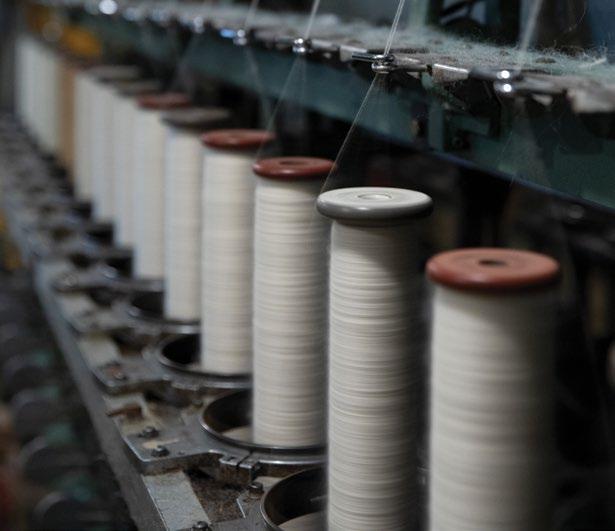

2017
Weaving Relationships
Community-Supported Cloth
Inspired by models of direct connectivity and upfront investment, Fibershed facilitated a reinvention of the supply chain from the ground up Community members reserved yardage of a forthcoming Climate Beneficial™ cloth, including a margin to reinvest directly in soil health building practices. More than 100 buyers committed to that first production, igniting a Community-Supported cloth program that continues today.
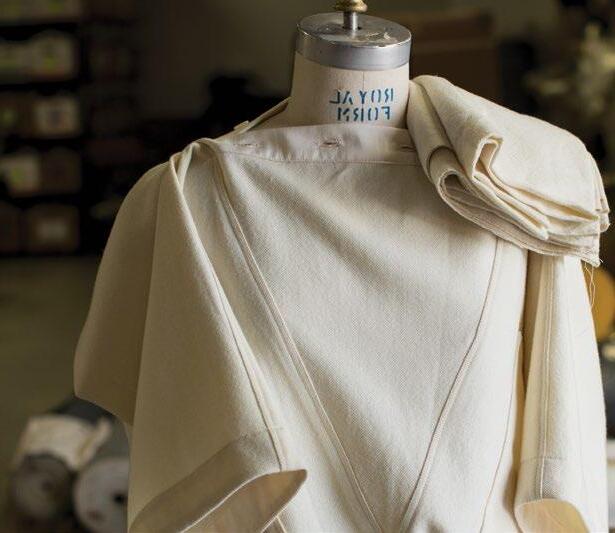
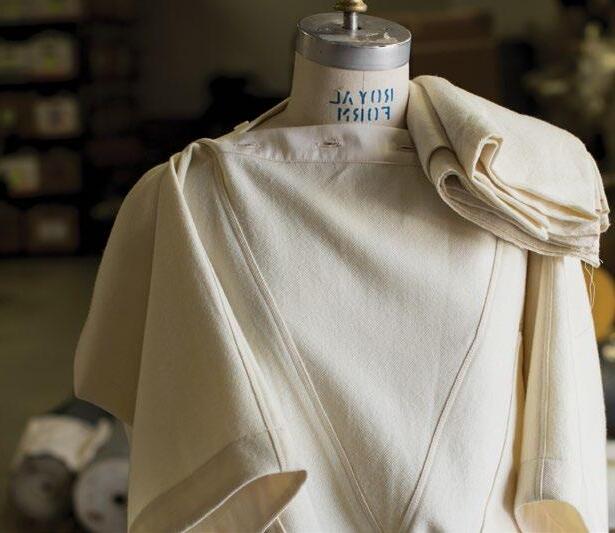
2022
Extending Impact
National Climate Beneficial™ Partnership
In collaboration with five partners, Fibershed was awarded $30 million from USDA to scale the Climate Beneficial™ fiber program over the next five years The project will expand regional capacity for Carbon Farm Planning, directly fund producers to carry out carbon farming projects, and create an open-source Carbon Farm Planning and Verification Online Portal.
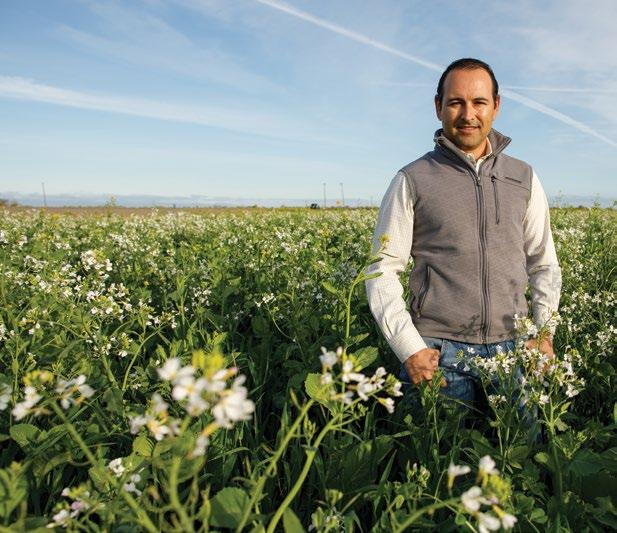
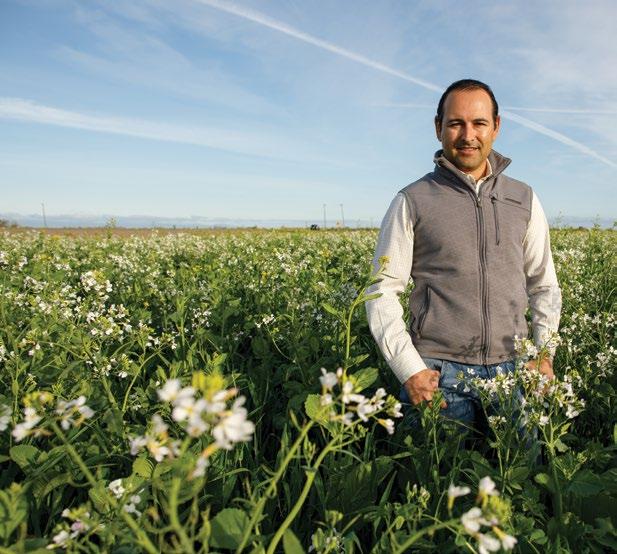 2020
2020
→
Photo: Koa Kalish
Financials Regranting Impacts
We are honored to do this work and we thank our funders for supporting our projects and programs. 2023 was a year that initiated our new role of leading and administering state and federal grants to build healthier soils across the state, expand markets for Climate Beneficial™ fiber nationally, and address climate change with our agricultural landscapes.
Fibershed creates opportunities to finance farmers, ranchers, designers, mills, and pilot projects that improve the regional production of textiles, foster climate solutions, and contribute to community prosperity. In 2023, Fibershed was entrusted to regrant funding for the following:
Fibers Fund
Fibershed and the Sustainable Agriculture and Food Systems Funders (SAFSF) have a joint MOU on the Fibers Fund, which issued $240K in total grants this year, with support for flax, hide tanning, natural dyes, and the Black Fiber Cohort.
Carbon Farm Seed Fund
Fibershed offers grant funding directly to producers through the Carbon Farm Seed Fund to help fund the implementation of carbon farm practices, usually between $2,000 and $6,000 to an individual farm to execute projects.
Affiliate Network Micro-Grant
Fibershed supports Affiliate Network members in developing and implementing place-based community activities, research, prototyping, educational events, and other resource development to serve their vision. Since 2017, this grant has supported over 83 projects — totaling more than $231,000 of funding.
Dispersement of the following grants will begin in 2024:
USDA Climate-Smart Commodities GrantCalifornia Department of Food and Agriculture Healthy Soils Program Block Grant
Fibershed and project partners will disperse $18M over five years to support carbon farming practices, to draw down 3M Mg of CO2e, and build markets for 1.6 million pounds of cotton and 225,000 pounds of wool.
For cotton producers in California, Georgia, Indiana, Alabama, Oklahoma, Tennessee, and North Carolina; and wool producers in California, Montana, North Dakota, South Dakota, Wyoming, and New York.
Fibershed will disperse $4M over three years to fund carbon farming practices, with additional support for growers defined as socially disadvantaged (Spanish language speakers and tribal populations) by the state of California.
35 34
$240,000 $150,000 $110,000 $90,000 total dispersed Average dollar amount Amounts dispersed all PGM-led Black-led only white-led (including LIFT) PGM = People of the Global Majority LIFT is a wraparound technical assistance and business coaching provider all businesses all PGM-led Black-led only white-led (including LIFT) white-led (not including LIFT) $24,000 $21,429 $22,000 $22,500 $21,667
Total funding granted in 2023 17 projects in total
Number of projects funded 20222023 29 17 20232024 20202021 20212022 14 12 Dollar amounts awarded 20222023 20232024 20202021 20212022 $50,696 $66,875 $121,935 $62,125 Types of projects funded 4 Capacity Building 2 Farming and Climate Beneficial Projects 4 Fiber Processing Research & Infrastructure Development 4 Community Engagement 3 Producer Outreach & Inventory Mapping $72,296 Revenue Grants $1,171,066 Contributions $664,121 Event / Earned Income $101,052 Total Revenue $1,936,239 Assets + Liabilities Current Assets $1,388,649 Total Assets $1,388,649 Liabilities $73,735 Equity $1,314,914 Total Liability + Equity $1,388,649 Expenses Programs / Outside Services $1,198,809 Personnel $455,389 Admin / General Operations $144,800 Total Expenses $1,798,998 Contributions Events / Earned Income Grants 34% 5% 61% Personnel Admin / General Operations Programs / Outside Services 25% 8% 67%
Thank You
Our donors make our work possible. Thank you for supporting our producers, the planet, and our growing regional fiber system. We could not do this work without you.
FOUNDATION GRANTS
11th Hour Project, a project of The Schmidt Family Foundation
Anonymous Donors Community Foundation for San Benito County Globetrotter Foundation
L. P. Brown Foundation— Special Fund
Lydia B. Stokes Foundation
Macdoch Foundation
Maine Community Foundation
Marin Community Foundation
Metabolic Studio and the Annenberg Foundation
Mighty Arrow Family Foundation
Nordstrom Foundation
One Earth
INDIVIDUAL / BUSINESS DONORS
Adelina Matinca
Alan Kepner and Nancy Bisio
Amy Boone
Andrea Cameron
Andrea Fleming
Anna Nolan
Benevity
Bleakney Living Trust
Brindha
Dhanabalan
Bryan and Bonnie Fandrich
Center for Spiritual Living
Charles Fortenberry
Cory VanGelder
Dana Kueffner
Deborah Fitzpatrick
CARBON FARM SEED FUND
Alisa Rose Seidlitz
Barbara Hoff
Beth Hagenlocker
Claire Podoll
Cory VanGelder
Pledgeling Foundation
Regenerative Agriculture Foundation
RSF Social Finance
The McCurdy Family Foundation
The San Francisco Foundation
The Samuel and Grace Gorlitz Foundation
William and Elizabeth Patterson
Family Fund
Deborah and Edward
Heyman Donor Advised
Philanthropic Fund
Diane Poslosky
Eileen Morey
Ellen G. Hauptli
Erin Martin
Ferndale Farms
Hans P Jorgensen
Henry Lichtenstein
Holly Tavarozzi
Jack and Maribel
Fraser
Janet Huggard
Jennie Gowan
Jill Hackett
Joan Park
Jordan Davis
Julia Lucey’s Printshop
Katherine Marine
Kathryn Ortolano and
Brian Shepard
Ken and Kerry Keefe
Kerry Keefe
Klara East
Kristin Parker
LaJean Carruth
Lake Partners Strategy Consultants, Inc.
Laura Amidon
Laurel Jamieson
Leslie Terzian and John Markoff
Lila Ryan
Louise Keogh Weed and John Keogh
Margaret Joseph
Margaret Osterkamp
Margrethe Baekgaard
Maria Echaveste
Marion Kat Anderson
Mary Dirnberger
Maureen Block
Michael Beckley
NDN Collective, Inc. Network for Good
Nishanga Bliss
Oleg and Heather Nodelman Giving Fund
Pam Roy
Paula Clark
Penny Hewitt
Rachel May
Rachel Phillips
Photography
Rebecca McNeil
Robin Mitchell
Ronald Borkan
Sunnyside & Sunnyside
LLC
The Blackbaud Giving Fund
United Way Bay Area
Daniel Rosen
Deborah Borzelleri
Eileen Mockus
Imperial Yarn
Kerry Keefe
THREADING RESILIENCE FUNDRAISING CAMPAIGN
Abby Goodman
Abi Woodbridge
Abigail Chodosh
Alanna Naegele
Alice Fuller
Alissa Ralston
Anastasia Creates
Annaise MeyersGoldsby
Ashley Williams
Barbara Kobabe
Barbaree Jernigan
Battenkill Valley Fibers
Ben Podoll
Bernadette Geuy
Beth Hagenlocker
Beth Mort
Betina Winkler
Blake Wolf
Carol Lane
Carrie Palmer
Chelsea Bravo
Christel Lanthier
Cynthia Kuhlman
CZarina den Ouden
Lobo
Daniel Dauner
Deborah Frankel
Debra Witter
Denise Marshall
Diane Christ
Leslie Simon
Melvyn Baez
Minh-Tam Pham
Paula Clark
Paula Ann Balch
Doreen Ruffe
Dorothy Ernst
Dustin Kahn
Elizabeth Ryan
Enid Schwartz
Erika Michelotti
Felicia Lee
Gordon Wood
Grace Feeney
Hannah Bourne
Hannah Thiessen
Harry Keally
Heather Boright
Heather River
Helen Krayenhoff
Hilary Heaviside
J Johnson
Jack and Maribel
Fraser
Jan Hamilton
Jane Varley
Janet Didur
Jennifer Sackeyfio
Jennifer ShusterClark
Joanna Hobson
Joanna Shields
John Koene
Josephine Borgeson
Kahla Gentry
Karen Ososki
Karinne Knutsen
Robert LaPlante
The Fujii Family Trust
Tyler Cobian
Virginia Petitte
Kate Hirst
Kate Stuart
Kathryn Hardage
Kathryn Malinak
Katrina Cookman
Kellen Meyer
Kelly Rand
Kerry Keefe
Keyaira Terry
Kim Bethel
Kristine Cunningham
Leah Swindler
Lesley Ocean Parks
Studio
Leslie Simon
Lexi Fujii
Lila Ryan
Linda Berlinger
Linda Flotow
Linda Lienhard
Lindsay Kaplan
Lindsey Wondolleck
Lisa Canning
Lisa Heinz
Lisa Pickford
Lisa Rodondi
Lisa Takata
Liza Upham
Mohamed
Looksee Creative
Lydia Wendt
Margaret Donovan
Margaret Greenwood
Maria Ficalora
Knitwear LTD
Maria Gharakhanian
Marian Bruno
Marian Dahlberg
Maribel Fraser
Marilyn Robert
Mary Coble
Mary O’Malley
Maya Trifunovic
Meg Hanrahan
Megan Dunning
Megan von Feldt
Melecio Estrella
Melissa Tan
Merrill Randol
Monica Wilson
Murial Murch
Nadine Lew
Natalie Chanin
Natural Cycles Farm
Nell Painter
Nicole Hay-Chapman
Nina Alsborn
Nishanga Bliss
Noelle Gaberman
Oddbjorg
Kvangarsnes
Olaf Isele
Page Dunne
Pamela Hiller
Patrick Cauldwell
Patrick Shields
Rachel Hefferan
Rebecca Morse
Reed Fry
Rosa Ng
RSF Social Finance
Sandra Guidi
Sanna McKim
Sara Holwerda
Sarah Eapen
Sharon and John Nasstrom
Simone Parrish
Stephanie Smagala
Strung Out Knits
Susan Akins
Susan Reeks
Suzanne Broetje
Suzanne Northcott
Sylvia Imbrock
Terry Church
The Lavender Ewe
Theresa Nguyen
Toshiye Yokota
Tracy Irwin
Tracy Kirkman
Trilby duPont
Vivian Fujii
37 36
Support Our Work
Fibershed is a nonprofit organization that develops regional fiber systems that build ecosystem and community health. Our work expands opportunities to implement climate-benefitting agriculture, rebuild regional manufacturing, and connect end-users to the source of our fiber through education. We transform the economic systems behind the production of material culture to mitigate climate change, improve health, and contribute to racial and economic equity.
By donating to Fibershed, you directly support our mission. Visit the fibershed.org/join to become a monthly donor or make a one-time contribution.
We are grateful for your support.
“My ideal fiber future would be one centered in an ethos of qualityover-quantity, where our clothing contributes to the experience of building a true sense of belonging to a place. That’s what textiles used to do — textile culture, food culture, music, storytelling, all these things are hardwired to remind us of where we come from and our relationship with landscapes and the things that allow us to exist in these bodies. I think textiles could become a decent, if not a perfect, reminder of our relationship to ecosystems.”
Rebecca Burgess, Executive Director
PO Box 221, San Geronimo, CA, 94963
fibershed.org
Board of Directors
Rebecca Burgess, MEd Chair
Kat Anderson, PhD
Marlie de Swart Treasurer
Dustin Kahn Secretary
Annual Report
Editor
Sirima Sataman
Contributors
Heather Podoll
Lexi Fujii
Mike Conover
Rebecca Burgess
Design
Nicole Lavelle
Photography*
Paige Green
*unless otherwise credited
38






 Rebecca Burgess Executive Director
Rebecca Burgess Executive Director








































 2020
2020